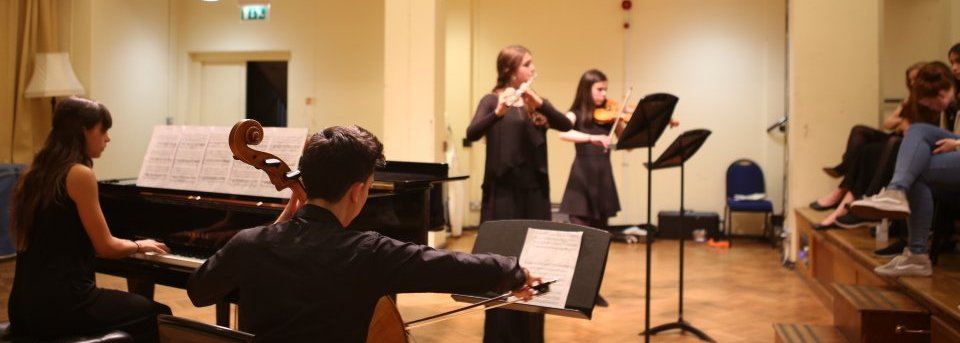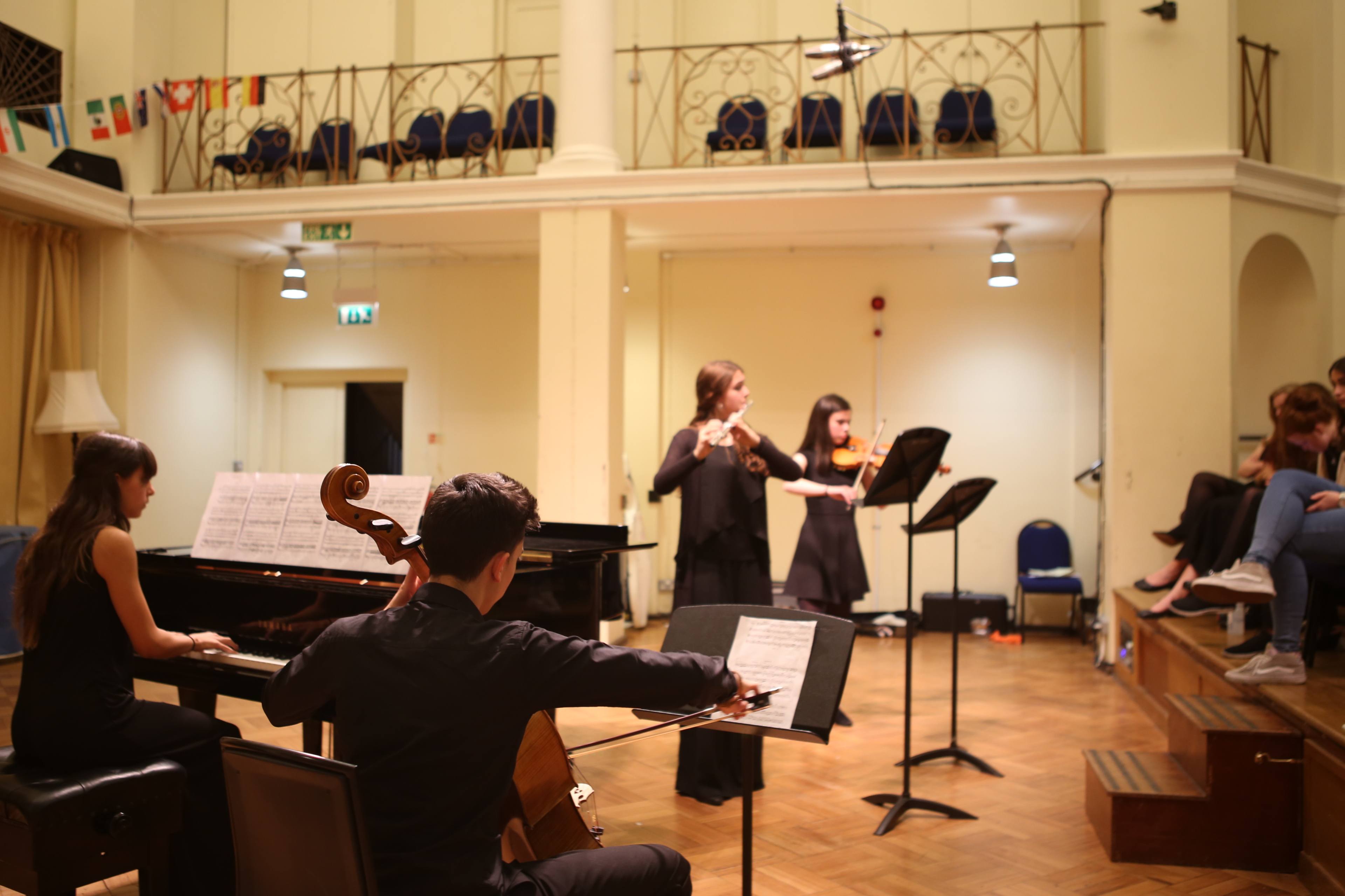"Should I Study Music?"
5 highly desirable skills you'll have as a musician
9 February 2018
Further study at a university or conservatoire is an important stepping-stone in the life of many professional musicians – but a career as a performer is not the only path open to music graduates. Musicians are everywhere!

Whether you're choosing subjects for your A-levels or Baccalaureate, or looking into further education at university, deciding what to study can be difficult.
If you're passionate about music but not certain about what your career might be, you might be wondering whether further education in music is right for you.
Luckily, an education in music is not as limiting as you might think - you’ll find there are plenty of doors open to you!
Studying music is an enriching and rewarding experience, and as a trained musician you’ll also be equipped with a valuable set of transferrable skills. Music graduates are highly employable in all kinds of roles across a range of industries, from law and medicine to teaching and publishing.
Here are just 5 of the many desirable qualities you’ll have as a musician:

1. You'll be great at time management
Music students quickly learn the importance of staying organised, turning up early and being prepared – conductors can be unforgiving! You’ll not only need to balance your academic work with practicing your instrument/voice; you’ll also have a busy schedule of rehearsals, concerts throughout the year, and all kinds of other events. Put this alongside the busy social life of a student, and you’ll soon find that keeping a strict diary is absolutely essential. The ability to manage your own time and work to competing deadlines is something employers will love.

2. You'll be analytical
Studying music isn’t just about practice and performance. The academic side to a music degree involves reading and interpreting a lot of complex information, such as analysing a passage of music or reading a historical document, which you’ll need to understand and then form your own opinions on. These skills are particularly useful for a career in law (a popular choice for music graduates), and are integral to all kinds of professions including medicine, journalism and finance.

3. You'll be motivated and proactive
Musicians are self-starters. Fancy playing a Haydn quartet? Grab three friends and find a practice room. Keen on performing? Put on a concert and promote it. As a music student you’ll probably end up organising all kinds of events, forming groups and finding your own opportunities – all this looks great on your CV and is useful experience, particularly for careers in management consultancy, marketing or events management.

4. You'll have great communication skills
Being a good communicator is extremely valuable, and as a music graduate you’ll already be way ahead of the curve. Listening, contributing respectfully, and communicating ideas with confidence – all essential in music-making – are skills which are directly transferrable to how you'll conduct yourself in meetings, in the board room, or working as part of a team in practically any industry.

5. You'll be a problem solver
What sets music graduates apart most of all? Creativity! Music is unique in being both highly disciplined and extremely creative. This means that as a music student you’ll be able to think outside the box, while sticking to the task at hand – whether it’s taking a new angle on a Beethoven Sonata, or figuring out a different approach to managing a large-scale project in whatever industry you're in.

What are my options?
A degree in music can lead to a career as a professional musician, but it can just as easily lead to a career in finance, law, medicine, teaching, events management, marketing, public relations, development, recruitment, publishing, film and television, media production, or any number of specialized roles in both public and private sectors.
Fast-track graduate schemes and conversion courses are available for all of these at postgraduate level, building on your experience. The transferrable skills you gain from a music degree equip you perfectly for more advanced learning in other areas – so the sky’s the limit!
How do I start preparing for the next step?
Spending a summer at the Ingenium Academy is a great way to get a taste of what it’s like to study music at a higher level, and many of our students find the experience really helpful in making decisions about their future.
 "I learnt how to be independent, I realized what career I would like to enter into and I learnt a lot about myself."
"I learnt how to be independent, I realized what career I would like to enter into and I learnt a lot about myself."
- Anna, Ingenium Academy vocal student 2017
Both employers and universities love to see a rounded individual who can offer something unique, and a summer at the Ingenium Academy is a great way to expand your horizons.
Whatever job or career you end up in, and whatever you end up studying, being part of a choir, orchestra or musical ensemble as a student, and alongside work as an adult, is a great way to de-stress, find friends wherever you are, be mindful - and enjoy yourself!
Whether you're intending to focus on music for your career or to keep it as a hobby, our programmes offer a fun and enriching experience where you can learn about yourself and others, all while making great music at a high standard.
Sounds good. How do I find out more?
Take a look at our programmes, download our brochure, and get started with an Application Pack today. Any questions? Send us an email at info@ingeniumacademy.com.

Pre ious res
ious res
Previous articles










